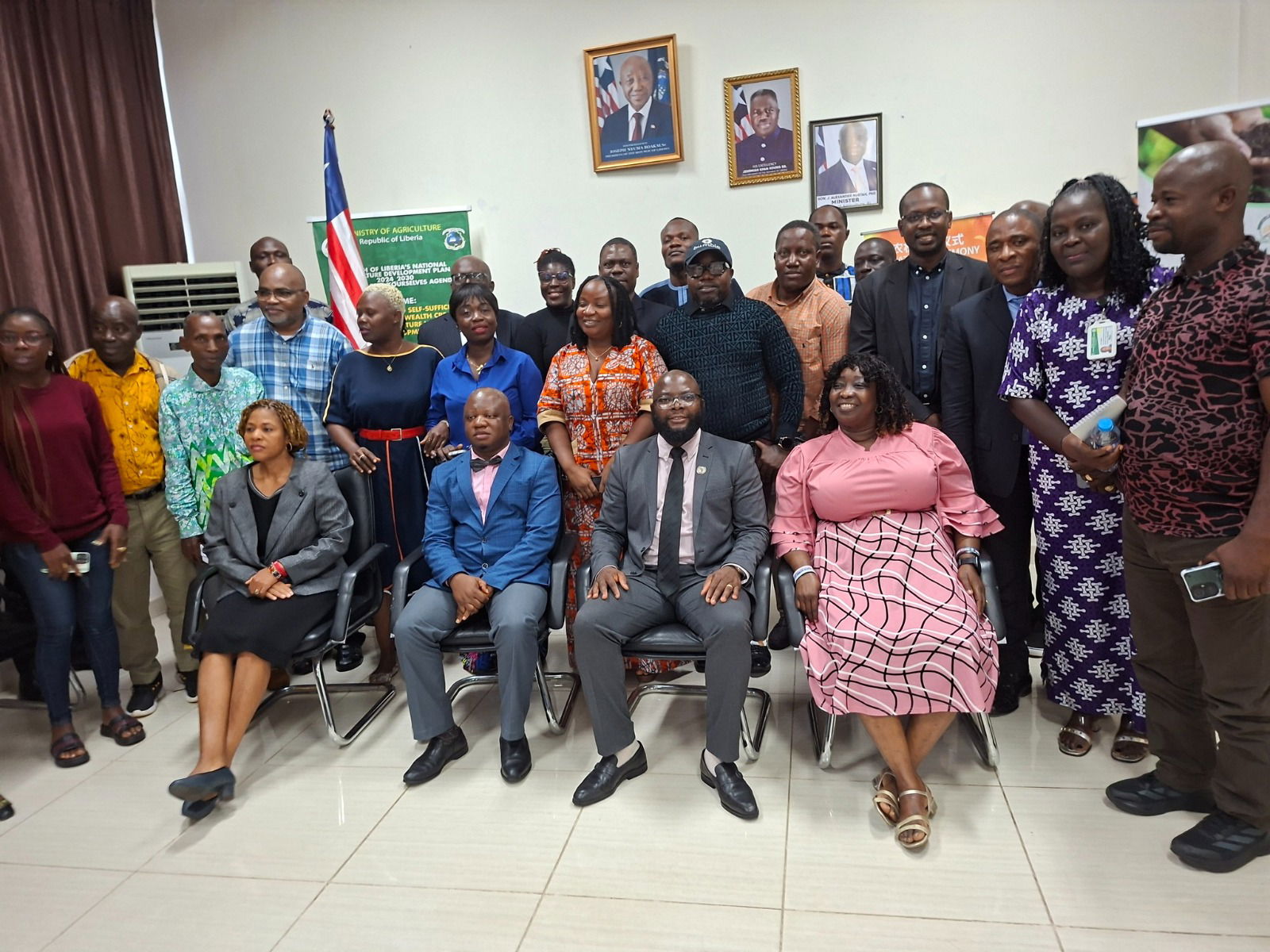DDGO Leads NFAA Team to Meet AUD-NEPAD Mission

The Deputy Director General for Operations (DDGO) of the National Food Assistance Agency (NFAA), Hon. Elton S. Dickson early Wednesday led a team from the agency to the Ministerial Complex in Congo Town to interact with guests from the African Union Development Agency and the New Partnership for Africa’s Development (AUD-NEPAD) on issues surrounding Agri-Food Systems, Post Malabo Declaration and the transition to the Kampala Declaration. The AUD-NEPAD mission arrived in the country on August 4, 2025 and has since been engaging with the Ministry of Agriculture and other key stakeholders in the National Agri-Food Systems in the bid to align the country’s agriculture development agenda with the Comprehensive Africa Agriculture Development Programme (CAADP). CAADP is Africa Union’s (AU’s) policy framework aimed at improving food and nutrition security and incomes in Africa’s agrifood economies. The policy adopts strategies towards the realization of Agenda 2063: “The Africa We Want.” The round-table discussions, on August 6, 2025 in which the NFAA team was actively involved, brought together representatives from the National Disaster Management Agency (NDMA), the National SUN Secretariat, Ministry of Health, UNICEF, WFP, FAO, among others. On the NFAA team, along with the DDGO, were Webster R. Nyian, Annie Markelee Flomo and Clarence B. Borley - heads of PR & Communications, Planning and Program and Monitoring and Evaluation, respectively. At the start of discussions which preceded series of presentations from the visiting mission, Assistant Minister for Planning and Development at the Ministry of Agriculture Francis Mulbah threw light on the National Agriculture Development Plan (NADP). He said NADP is the six-year strategic plan that seeks to provide the enabling space for Liberia to reliably feed itself in the next five to six years’ time after the successful implementation of the plan. According to Assistant Minister Mulbah, the plan is built on five pillars that contain nineteen value chains. He mentioned food, cash crops, fruits, livestock and aquaculture as key components of the pillars. Meanwhile, presentations from the AUD-NEPAD visiting team emphasized the need to identify key drivers and challenges when adopting the CAADP approach to transform Liberia’s agrifood systems. The presenters on the mission, many of whom are agriculture and food security experts, then posited six strategic objectives associated with the approach. The objectives include the following: 1. Intensify sustainable food production, agro-industrialization and trade 2. Boost investment and financing 3. Ensure food and nutrition security 4. Advance inclusivity and equitable livelihood 5. Build resilience on agrifood systems to shocks 6. Strengthen agrifood systems governance


